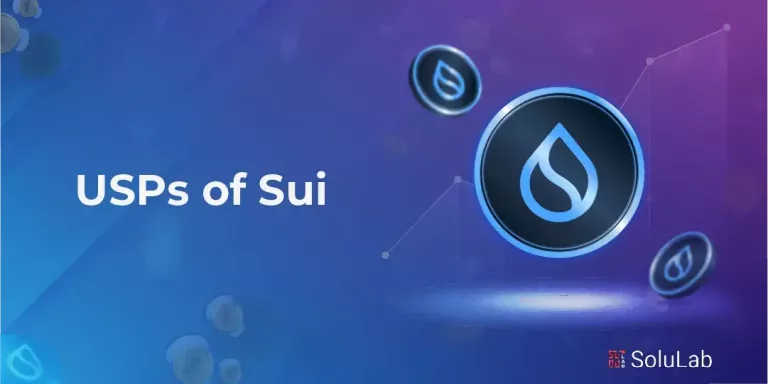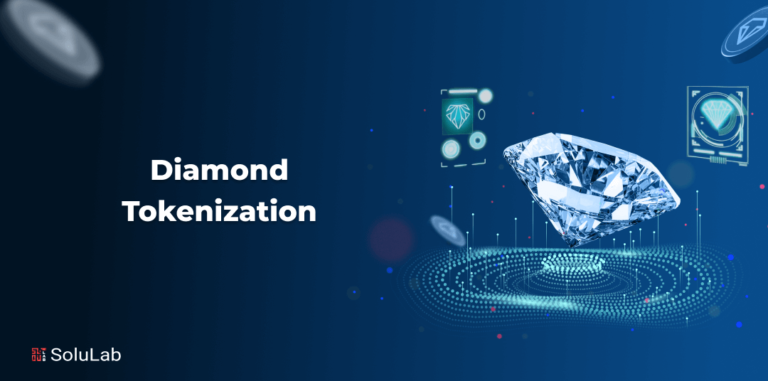Blockchain is a game-changing technology that has transformed practically every industry, including banking, healthcare, supply chain, and many more. Blockchain has been shown to be the most effective and efficient solution for handling data more securely and confidentially. More potential are being discovered as Blockchain technology tests continue. The growing number of Blockchain platforms helps and accelerates the development of blockchain-based systems. Businesses have seen the necessity and have begun to investigate Blockchain potential by building creative Blockchain apps.
In the rapidly evolving landscape of technology, blockchain has emerged as a revolutionary solution for enterprises seeking to enhance security, transparency, and efficiency in their operations. As of 2025, several enterprise blockchain platforms have risen to prominence, each offering unique features tailored to different business needs.
In this blog, we will delve into the top 5 enterprise blockchain platforms that are leading the charge in 2025, empowering businesses to transform industries and redefine processes. But, first, let’s get to know more about blockchain technology!
Read Our Blog: Top 10 Blockchain Development Companies in 2025
What Exactly is a Blockchain Platform?
A Blockchain platform makes it possible to create permissioned or permissionless Blockchain applications. Among the names that provide comprehensive Blockchain platforms that allow developers to construct host apps on the Blockchain are Hyperledger, XinFin, Ripple, R3, and EOS.
The following variables can assist in determining the optimal Blockchain platform:
- The platform’s current state of development
- The blockchain systems’ reputation in open-source software development forums such as GitHub
- The consensus protocol is currently in use
- Whether or not the system supports Smart contract capabilities.
- Scalability provided by the Blockchain platform
Understanding Blockchain’s Impact on Enterprises
Blockchain technology’s impact on enterprises is nothing short of transformative. Its decentralized nature eliminates the need for intermediaries, streamlining processes and reducing costs. At its core, the enterprise blockchain development platform creates a trust layer among participants, ensuring that all parties can verify the authenticity of transactions without relying on a central authority. This fundamental shift in trust dynamics holds the potential to revolutionize supply chains, financial transactions, identity management, and more.
Moreover, blockchain’s immutability and transparency are powerful tools for combating fraud and ensuring data integrity. The ability to track and trace assets at every step of their journey is particularly valuable in industries such as pharmaceuticals, where authenticity and provenance are critical.
Read Our Blog: Top Blockchain Technology Companies
Key Factors Driving Adoption in 2025
As we step into 2025, several key factors are driving the adoption of enterprise blockchain platforms:
- Enhanced Security and Privacy: High-profile data breaches and cyberattacks have highlighted the vulnerabilities of centralized systems. Enterprises are turning to blockchain’s cryptographic techniques and decentralized architecture to fortify their security measures. The encryption and consensus mechanisms inherent to blockchain platforms provide a robust shield against unauthorized access.
- Interoperability Demands: In a globalized economy, businesses are interconnected and rely on smooth information exchange. Blockchain for the enterprise is focusing on enhancing interoperability, enabling different blockchain networks to communicate seamlessly. This is particularly crucial in industries like logistics and trade, where multiple stakeholders need to collaborate.
- Smart Contracts for Automation: Smart contracts, self-executing agreements with predefined conditions, have gained traction for automating complex processes. Enterprise blockchain is leveraging smart contracts to streamline tasks such as supply chain management, compliance, and even cross-border payments. This automation reduces manual errors and accelerates processes.
- Regulatory Compliance: Blockchain technology has the potential to revolutionize how real estate investments are crowdfunded. Currently, ownership of properties funded by crowdfunding is distributed among the investors. A real estate company, for instance, might offer 100 shares. Once fully funded, they use the investor’s funds to buy or construct an asset that will produce income.
- Cost Efficiency: Traditional cross-border transactions and intermediaries often come with significant costs. By cutting out intermediaries and optimizing processes, blockchain can substantially reduce transaction fees, particularly beneficial for global transactions.
- Tokenization and New Business Models: Tokenization involves representing real-world assets as digital tokens on the blockchain. This opens doors to new investment opportunities and business models. From real estate to art, enterprises are exploring innovative ways to tokenize assets and increase liquidity.
Check Out Our Blog: Top Blockchain Trends in 2025
Criteria for Selecting the Top Enterprise Blockchain Platforms
With the proliferation of blockchain platforms catering to enterprise needs, it’s essential to establish a set of criteria to evaluate and select the most suitable options. Each platform comes with its strengths and weaknesses, making the selection process a nuanced task. Here are the key criteria to consider when selecting the top enterprise blockchain platforms of 2025:
- Scalability and Performance: Scalability is crucial for enterprise applications that demand high transaction throughput. Platforms must demonstrate the ability to handle a large number of transactions per second while maintaining low latency. Considerations include the platform’s consensus mechanism, sharding techniques, and approaches to optimizing network performance as the user base expands.
- Security and Data Privacy: Enterprises handle sensitive data, and security is paramount. Blockchain platforms must employ robust encryption, hashing, and access control mechanisms to safeguard data from unauthorized access. Privacy features, such as zero-knowledge proofs and private transactions, allow enterprises to share information selectively while preserving confidentiality.
- Interoperability and Integration: In an ecosystem with multiple blockchain networks and existing IT infrastructure, interoperability is essential. Platforms should support seamless integration with legacy systems and other blockchain networks. Standards like cross-chain communication protocols enhance interoperability and facilitate data exchange between different platforms.
- Smart Contract Capabilities: Smart contracts automate business processes, but their complexity varies between platforms. Evaluate the programming languages supported, the ease of writing and deploying smart contracts, and the platform’s support for oracles (external data sources).
- Community and Support: A vibrant and active community indicates a platform’s vitality and ongoing development. Robust community support ensures quick issue resolution and a wealth of resources for developers. Platform documentation, developer tools, and user-friendly interfaces contribute to a positive user experience.
Read Also: Best Companies to Hire Blockchain Developers
Challenges and Considerations in Implementing Enterprise Blockchain
Implementing enterprise blockchain brings about a range of challenges and considerations that businesses must navigate to ensure a successful integration. Change management poses a hurdle as organizations transition to new blockchain-powered processes, requiring effective communication and training to overcome resistance and skepticism. Crafting suitable governance models is essential in maintaining decentralized networks’ stability and preventing conflicts. Additionally, technical challenges like scalability, interoperability, data privacy, and security vulnerabilities demand thorough planning and solutions to harness the full potential of blockchain while ensuring the integrity and efficiency of operations.
- Change Management and Adoption Hurdles: The adoption of enterprise blockchain introduces a transformative shift in business operations, which often entails challenges related to change management. Businesses must navigate the complexities of transitioning from traditional systems to blockchain-powered processes. Resistance to change, lack of awareness, and skepticism about new technologies are common adoption hurdles. Effective change management strategies, clear communication, and training programs are crucial to address these challenges. Enterprises must demonstrate the benefits of blockchain technology to stakeholders, emphasizing efficiency gains, enhanced security, and transparency to encourage seamless adoption.
- Governance Models in Blockchain Networks: The decentralized nature of blockchain introduces a novel challenge in the form of governance. Establishing governance models that ensure fairness, consensus, and decision-making among participants is essential. Striking the right balance between decentralized control and effective management is critical to prevent conflicts and maintain the network’s integrity. Different blockchain networks require tailored governance approaches based on factors like consensus mechanisms, participant roles, and network goals. Crafting transparent governance structures that accommodate the interests of all stakeholders fosters collaboration and ensures the longevity of the blockchain ecosystem.
- Overcoming Technical Challenges: While the potential of enterprise blockchain is immense, the technology is not without technical challenges. Scalability remains a significant concern, particularly for platforms processing a high volume of transactions. As the network grows, maintaining performance without compromising decentralization becomes complex. Interoperability between different blockchain networks and legacy systems is another technical hurdle. Ensuring seamless data exchange and communication across diverse platforms is essential for a unified and efficient ecosystem. Moreover, addressing issues related to data privacy, security vulnerabilities, and smart contract vulnerabilities demands rigorous development, thorough testing, and ongoing security measures.
Top 5 Enterprise Blockchain Platforms

1. XDC Network
XDC Network stands as a robust contender in the realm of enterprise blockchain development and has gained recognition for its efficient and scalable ecosystem. Built to address the limitations of traditional blockchain networks, XDC Network utilizes the XinFin Hybrid Blockchain to provide a balance between private and public blockchains. This feature caters to the diverse needs of enterprises, offering enhanced privacy while enabling interoperability with external systems.
XDC Network's consensus mechanism, based on a delegated proof-of-stake model, ensures high transaction throughput, making it suitable for applications demanding swift processing. Moreover, XDC Network extends its services beyond the technological aspect, offering comprehensive blockchain consulting services that guide businesses in adopting and integrating blockchain solutions seamlessly.

2. R3 Corda
As the enterprise landscape embraces blockchain innovation, R3 Corda emerges as a platform tailored for businesses seeking privacy-focused and secure solutions. Corda's unique approach to data privacy involves sharing information only with the parties involved in a transaction, ensuring confidential data remains confidential. This trait is particularly advantageous for industries like finance and healthcare that prioritize privacy.
Corda's modular architecture allows for flexibility, enabling enterprises to customize their blockchain networks to suit their specific needs. The platform's emphasis on interoperability simplifies integration with existing systems, offering a smooth transition to blockchain technology. With its focus on enterprise-grade solutions, R3 Corda is not only a powerful tool for enterprise blockchain development, but it also offers valuable blockchain development services to guide businesses through their blockchain adoption journey.

3. Hyperledger Fabric
Hyperledger Fabric has earned its reputation as a versatile and robust enterprise blockchain platform within the Hyperledger project. Its modular architecture caters to diverse business needs, enabling organizations to build and operate their own blockchain networks tailored to specific use cases. Fabric's privacy-focused design supports private channels, ensuring confidential transactions among select participants while maintaining overall network integrity.
The platform's emphasis on interoperability and collaboration makes it a valuable tool for enterprises seeking seamless integration with existing systems. Beyond its technical prowess, Hyperledger Fabric provides a wealth of resources for enterprise blockchain development, including educational materials and extensive documentation. With its proven track record and commitment to flexibility, Fabric is a powerful choice for businesses looking to harness the potential of blockchain technology.

4. Hedera Hashgraph
Hedera Hashgraph stands out with its unique directed acyclic graph (DAG) structure, promising high-speed, secure, and scalable transactions. The consensus mechanism, which combines voting and gossip protocols, enables swift consensus, making it suitable for real-time applications. Hedera's attributes are well-aligned with use cases such as supply chain tracking and digital identity verification, making it a valuable tool for industries seeking transparent and efficient solutions.
Beyond its technological features, Hedera Hashgraph offers blockchain consulting services to help businesses navigate the complexities of distributed ledger technology. With its focus on speed, security, and scalability, Hedera Hashgraph presents itself as a solution for enterprises aiming to optimize their processes and enhance their operations.

5. Quorum
Developed by J.P. Morgan, Quorum has established a strong presence in the financial sector, addressing the complex needs of enterprises in this industry. Built on the Ethereum framework, Quorum offers unique privacy features such as private transactions and confidential contracts, catering to the regulatory demands of the financial world. This makes Quorum a suitable choice for businesses looking to integrate blockchain while maintaining compliance.
The platform's commitment extends beyond technology; it provides expert blockchain development services to guide financial institutions in successful blockchain adoption. With its focus on privacy and expertise in the finance sector, Quorum empowers enterprises to embrace blockchain's potential while navigating the challenges specific to their industry.
Conclusion
In the rapidly evolving landscape of technology, the top 5 enterprise blockchain platforms of 2025 have emerged as the guiding lights for businesses seeking to embrace the future. These platforms, namely XDC Network, R3 Corda, Hyperledger Fabric, Hedera Hashgraph, and Quorum exemplify the cutting-edge solutions that are revolutionizing industries through enhanced security, transparency, and efficiency. As businesses around the world navigate the complexities of digital transformation, these platforms offer not only technological prowess but also insights into the challenges and considerations inherent in adopting enterprise blockchain solutions.
As the journey to integrate blockchain technology into enterprise operations unfolds, businesses can find a trusted ally in SoluLab. With its comprehensive blockchain development services, SoluLab empowers businesses to harness the potential of blockchain, offering tailor-made solutions that align with specific needs and goals. Whether it’s developing secure and scalable blockchain networks or creating smart contracts that automate processes, SoluLab’s expertise spans the entire spectrum of enterprise blockchain.
Looking to embark on your blockchain journey? You can hire blockchain developers from SoluLab, who bring a wealth of experience and innovation to drive your projects forward. With SoluLab by your side, the path to embracing the transformative power of blockchain becomes clearer and more attainable than ever before.
FAQs
1. What are enterprise blockchain platforms?
Enterprise blockchain platforms are specialized technology solutions designed to enable businesses to implement and operate blockchain networks. These platforms offer tools, features, and infrastructure that cater to the needs of enterprises, facilitating secure and efficient transactions, data sharing, and collaboration within a decentralized ecosystem.
2. How do enterprise blockchain platforms enhance business operations?
Enterprise blockchain platforms enhance business operations by providing a secure, transparent, and tamper-proof environment for transactions and data exchange. They streamline processes, reduce intermediaries, improve traceability, and offer automation through smart contracts. These platforms enable businesses to optimize supply chains, enhance data integrity, and explore new business models through tokenization.
3. What challenges do businesses face when adopting enterprise blockchain?
Businesses often encounter challenges related to change management, as adopting blockchain requires shifts in processes and mindsets. Governance models within decentralized networks, technical challenges like scalability and interoperability, and ensuring data privacy and security also present hurdles that require careful consideration and planning.
4. How can businesses choose the right enterprise blockchain platform?
Selecting the right platform involves assessing factors like scalability, security, interoperability, and the platform’s alignment with specific industry needs. Considering the platform’s track record, developer community, and available blockchain consulting services can also help in making an informed decision.
5. What are the potential benefits of enterprise blockchain adoption?
Enterprise blockchain adoption offers benefits such as enhanced security, transparency, reduced operational costs, streamlined processes, improved traceability, and the potential to create new revenue streams through innovative tokenization models. It also positions businesses at the forefront of technological innovation.
6. How can SoluLab assist businesses in enterprise blockchain development?
SoluLab offers top blockchain development services to businesses looking to implement blockchain solutions. From designing and developing custom blockchain networks to creating smart contracts and ensuring secure deployments, SoluLab’s expertise covers the entire spectrum of enterprise blockchain. Businesses can also hire blockchain developers from SoluLab to tap into their experience and innovation, enabling successful blockchain integration tailored to their specific requirements.




